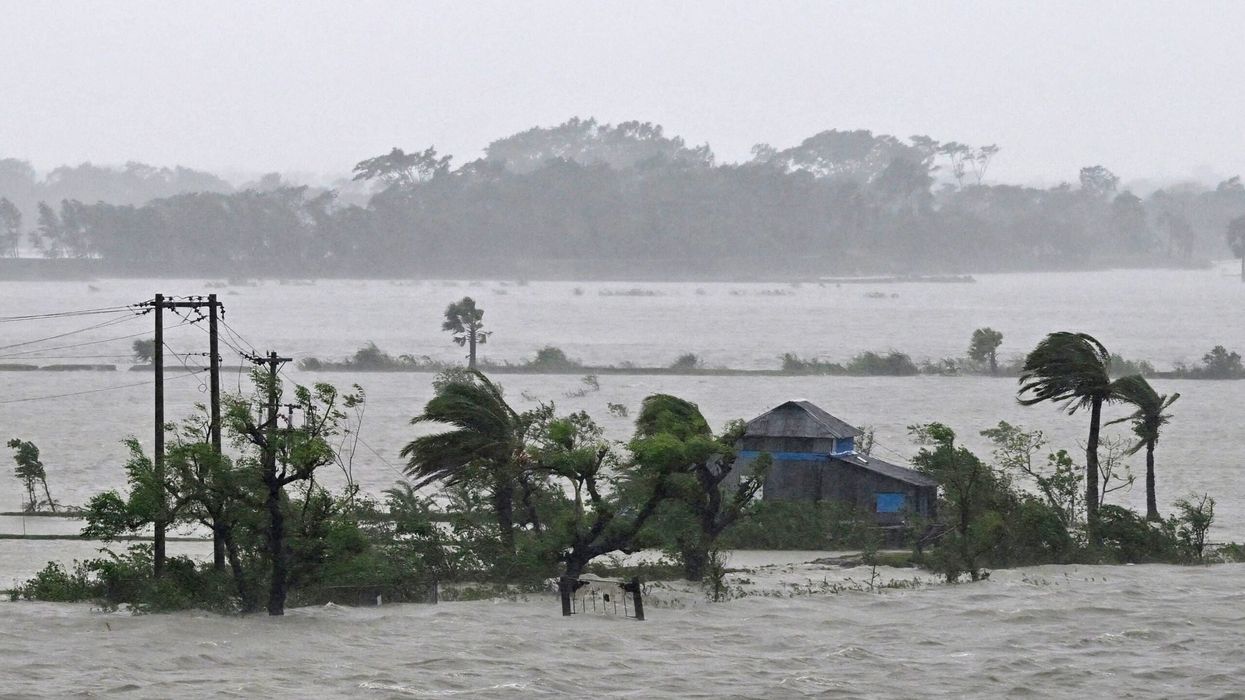A powerful cyclone that struck low-lying areas of Bangladesh and India has killed at least 65 people, state government officials and media reported on Wednesday.
Cyclone Remal made landfall on Sunday evening with strong winds and high waves, moving slowly inland and causing floods and landslides.
Azizur Rahman, director of the state-run Bangladesh Meteorological Department, described the cyclone as "one of the longest in the country's history," attributing the shift to climate change.
In Bangladesh, 17 people died, according to the disaster management office and police. The victims included those who drowned, were killed by debris or falling trees, or were electrocuted by downed power lines.
In India, 48 people died, according to government and media reports, updating an earlier toll of 21.
Most of the deaths occurred in northeastern Mizoram state, where 28 people died, including 14 workers crushed in a quarry that collapsed on Tuesday during the rainstorm, according to a statement from Mizoram's government.
Ten people died in West Bengal state, senior government official Sumit Gupta said on Wednesday.
Read Also: Study: One in five football players using nicotine pouches
At least 10 others died in the states of Assam, Nagaland, and Meghalaya, according to reports cited by the Hindustan Times.
Cyclones hit Bangladesh and India annually, but the number of superstorms affecting the densely populated coast has increased significantly.
Scientists attribute this rise to climate change. However, improved forecasting and evacuation planning have significantly reduced death tolls.
(AFP)





